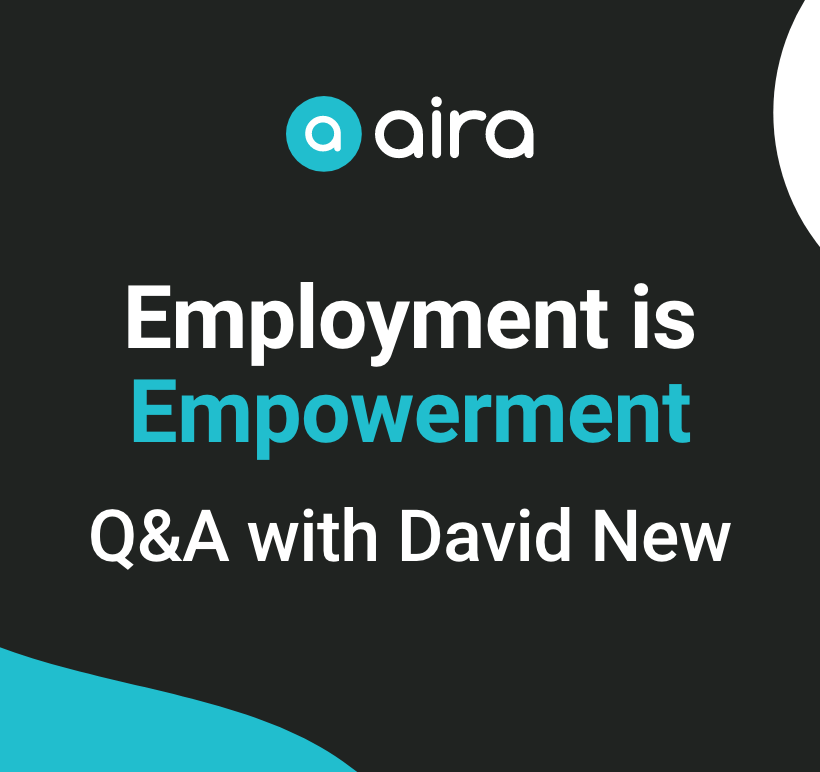Blind and low vision individuals can do anything that sighted people can do – and in many cases, they can do things even better. David New proves that to be true, thanks to Aira’s on-demand agents and particularly his own ambition and drive.
We’re spotlighting David as part of our blog series for National Disability Employment Awareness Month, which advocates for accessibility in the workplace to ensure all individuals with disabilities have the opportunity for social and economic livelihood.
Learn how David has unlocked new levels of independence through Aira and how our assistive technology keeps his life running smoothly, with everything from ordering in a restaurant to running two non-profit organizations.
Have you tried to use other assistive technologies before?
I’ve used many different assistive technologies. I consider myself an early adopter, a beta tester; I like to find out what’s new before it even comes out, which is obviously how I came to use Aira. At least in the very beginning when I started using Aira, there was just nothing else like it.
What convinced you to keep using Aira once you tried it?
I lived alone at the time I first started using it, so being able to do things on my own, from baking in the kitchen to finding my keys or my AirPods to getting things done around the house, that made a huge difference. It just gives you the sense of independence that you don’t need another human being with you to accomplish basic things that you need to do.
What surprised you about Aira? What makes it sticky?
Aira provides more information than most people in general are used to having when they walk down the street – sighted or otherwise!
For example, if I’m walking down the street with my guide dog, Aira is telling me in real time what I’m passing. If I walk by a restaurant or a shop, I can actually ask questions about them, like what’s on the menu, or get into detail about what’s around me. It’s just such an enamoring experience that you fall in love with it.
What do you do for work?
I run two 501(c)(3) non-profit organizations. One is an ADA advocacy organization called Access Now. The other, Power Access, is focused on disability awareness and it’s also where I produce the South Beach Jazz Festival. (David founded it in 2016.)
I’ve used Aira for both of those roles as part of everyday tasks and when I interact with collaborators, with the public onstage, in meetings, during travel – all of the above!
How can Aira assist other blind and low vision individuals in the workplace?
With Aira, the assistance is built in, so you don’t have to worry about needing to constantly come up and ask for assistance. Even before you get to the job, when applying for employment, filling out forms and paperwork requires assistance. Aira Agents are there for that.
What do you do in your free time?
I have an interior design business, and I also work with universities, students, and engineers on creating new accessible tools for people with disabilities.
I’m an artist, too. I recently did a series of sculptures of iconic architecture, like the Arc de Triomphe in Paris and the Taj Mahal, then of movie stars like Elizabeth Taylor and Marilyn Monroe. Then, I did a series of $2 bills. I enlarged and lasered them into glass illuminated by a stainless steel base. Each came in a stainless steel briefcase with the original $2 bill and my signature on it.
What’s something you’d want people to know if they’ve never heard of Aira?
Try it for free. The level of assistance that Aira brings to one’s life is incomparable. It’s better than asking a friend sometimes because when you’re using it, you need information quickly and the Agents are skilled in how to inform you because they’ve been professionally trained in how to understand what blind people need. Aira has changed my life for the better, and once you’ve taken that step, you won’t look back.
